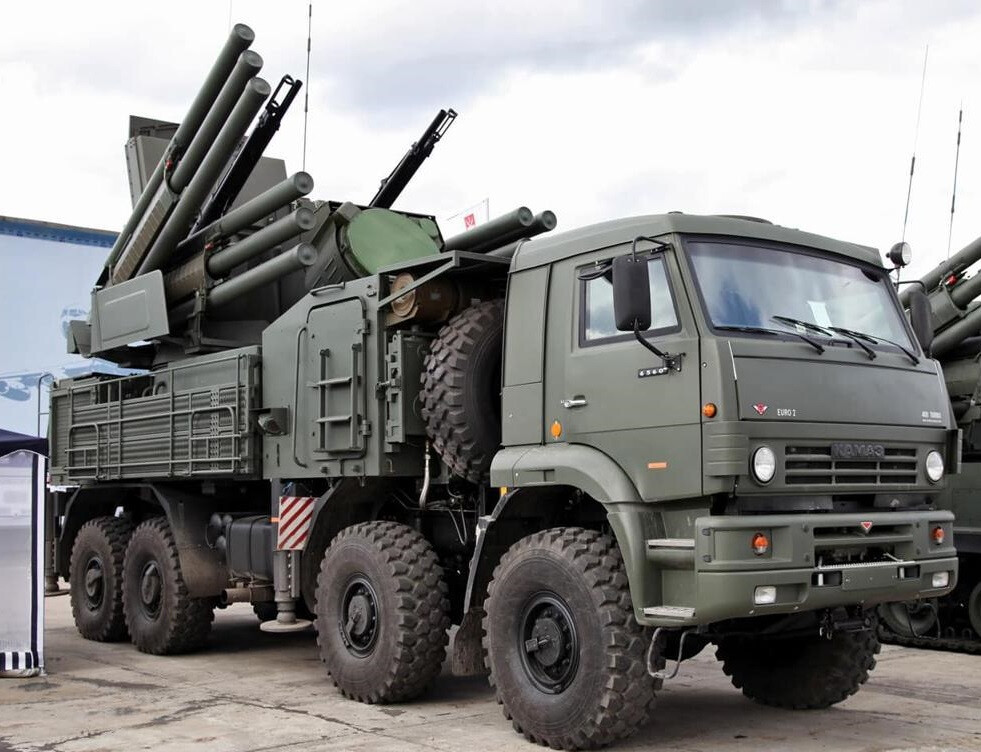
PYONGYANG, North Korea – North Korea has reportedly deployed the Russian-made Pantsir-S1 mobile air defense system in its capital, Pyongyang, to bolster its air defenses. This revelation, stemming from a Ukrainian intelligence official, suggests a deepening military cooperation between Pyongyang and Moscow, with implications for regional security and the ongoing conflict in Ukraine.
Kirill Budanov, head of Ukraine's Defense Intelligence Directorate (GUR), stated in an interview with local media that "the first Pantsir is already installed in Pyongyang and is performing capital defense duties." This marks the first confirmed instance of North Korea integrating the Pantsir-S1 into its air defense network. The Pantsir-S1 is a sophisticated short-to-medium-range surface-to-air missile and anti-aircraft artillery weapon system developed by Russia, known for its ability to engage a wide range of aerial threats, including aircraft, helicopters, cruise missiles, and precision-guided munitions. It features a multi-channel target tracking system, and is typically armed with twelve 57E6 missiles and two 2A38M 30mm automatic cannons.
The deployment follows reports from the Multinational Sanctions Monitoring Team (MSMT) in May, which indicated that North Korea had supplied approximately nine million artillery shells and over 100 ballistic missiles to Russia for use in its war against Ukraine. In return, Russia reportedly provided North Korea with various military assets, including Pantsir combat vehicles. The MSMT, established in October last year by 11 nations led by South Korea, the United States, and Japan, serves as a replacement for the UN Security Council's Panel of Experts on North Korea, which was dissolved due to a Russian veto.
The integration of the Pantsir-S1 into North Korea's defense system is seen as a significant escalation in the military partnership between the two countries. Budanov further asserted that Russia is "re-educating North Korean personnel [on weapon systems and related matters], and soon North Korea will be able to use this technology autonomously." This suggests that North Korea is not only acquiring advanced weaponry but also gaining crucial military technology and practical experience from Russia, potentially enhancing its indigenous defense capabilities.
Beyond direct arms transfers, there are growing concerns about potential North Korean military personnel involvement in the conflict. Budanov speculated that the number of North Korean citizens in Russia could "significantly increase" in the future, with some potentially volunteering to join the Russian armed forces. This scenario suggests a covert form of military support from Pyongyang, circumventing direct official troop deployment by encouraging its citizens to enlist in Russia. This aligns with a previous report from last month, indicating North Korea's agreement to send an additional 6,000 engineering and military construction personnel to Russia. Furthermore, Budanov claimed last month that Russia was transferring Iranian-made suicide drone manufacturing technology to North Korea.
The implications of this burgeoning military alliance are multifaceted. For North Korea, it presents an opportunity to modernize its aging military hardware, acquire advanced defense technologies, and potentially gain combat experience for its personnel. For Russia, North Korea serves as a crucial source of conventional ammunition and ballistic missiles, enabling it to sustain its war efforts in Ukraine amidst Western sanctions. However, this deepening cooperation also poses significant challenges to international non-proliferation efforts and regional stability, particularly given North Korea's continued pursuit of nuclear weapons and ballistic missile programs. The transfer of sophisticated air defense systems and potentially other military technologies could further complicate efforts to contain North Korea's military ambitions and increase the risk of miscalculation in the highly militarized Korean Peninsula.
[Copyright (c) Global Economic Times. All Rights Reserved.]






























